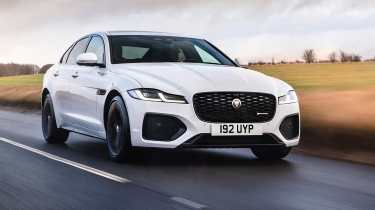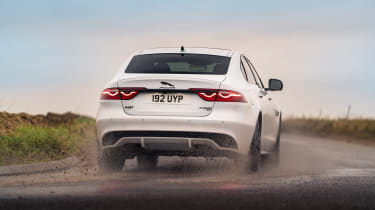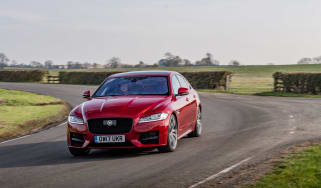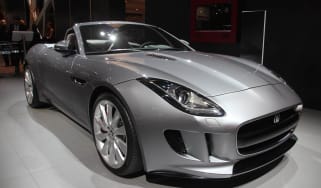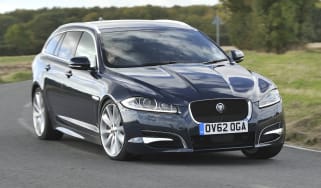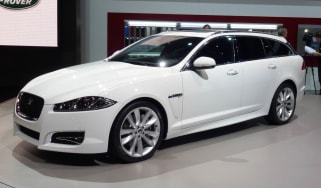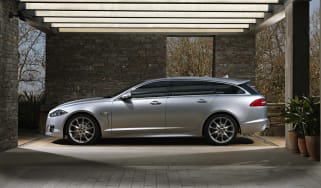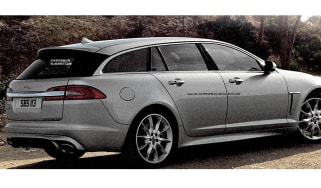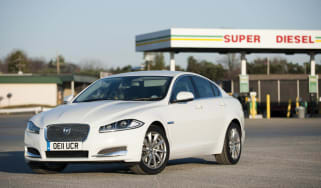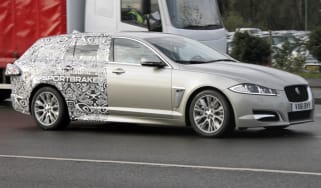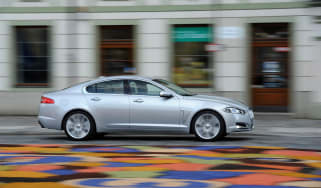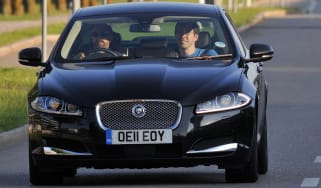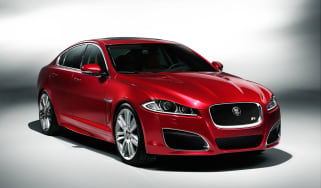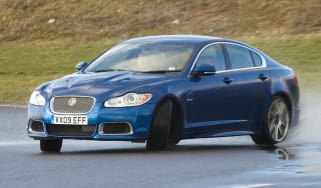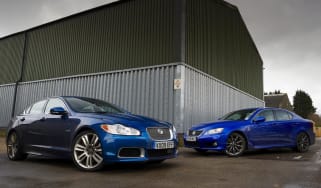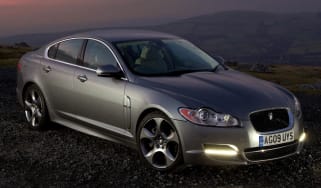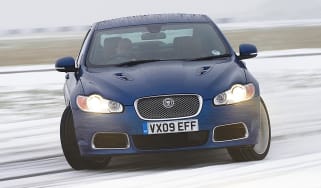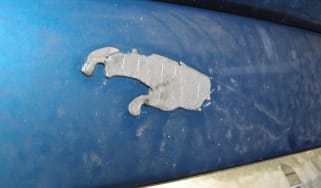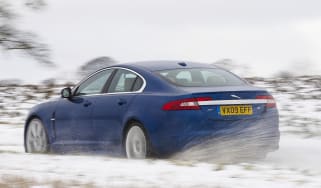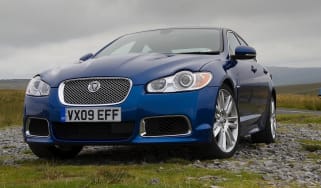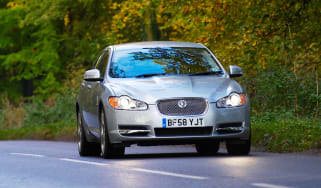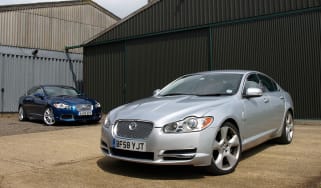Jaguar XF review – British exec refreshed, but is it enough to ward off rival BMWs and Mercs?
The XF’s impressive chassis is now joined by a plush new interior and slick tech, but powertrains remain a significant weakness
The XF was something of a keystone model for Jaguar when it first appeared in 2007. The all-new executive saloon was not just a replacement for the S-Type, but also a signal that Jaguar was ready to break free of its heritage-led brand positioning and embrace change. It was this drive that forgoed the traditional Jaguar burr walnut trim and shameless retro detailing in the XF, creating in its wake, a new image of British luxury.
Fast forward to 2021 and the second generation XF is a rather different proposition. Due to a shrinking market and JLR’s investment in other products, the second generation XF has fallen to be something of an undercooked model in the range, something this dramatic mid-cycle update should address.
> All-electric Jaguar XJ axed as new strategy is announced
For 2021, Jaguar has not only nipped and tucked the exterior, but also paid attention to the previous model’s under-wrought interior, applying its latest tech. All while not forgetting the real talent of this generation XF – it’s superb chassis.
Thankfully, not much has changed under the skin, but the XF’s increasingly limited appeal is partly explained by the lack of variety of its powertrains. As such there’s no longer any high-performance models, Jaguar instead focussing the range to appeal to exactly what it thinks customers in the traditional executive class are after: a plush, refined and sophisticated cruiser.
Jaguar XF: in detail
- Engine, gearbox and technical highlights > This is where the XF’s biggest weaknesses persist. Both Ingenium units are average at best
- Performance and 0-60 time > These are engines designed to go as fast as you need to, but no more. Don’t go expecting any M5-rivalling acceleration times
- Ride and handling > Back in the XF’s comfort zone, which is where you’ll be too, as the chassis is excellent and ride comfort superb across the board
- MPG and running costs > Thanks in part to being constructed from JLR’s uniquely heavy aluminium alloy, these XF’s aren’t as frugal as their acceleration figures would suggest
- Interior and tech > A huge step up in quality, material and tech. Feels genuinely plush and luxurious
- Design > Not Jag’s finest saloon design of the era, but it’s inoffensive and handsome, if a little benign
Prices, specs and rivals
This is where things get interesting, as the new XF is priced very aggressively. Starting at around £35,000, an XF with a 200bhp diesel and the standard automatic transmission is over £5500 less than a BMW 320d. Compare it to a 5-series, which is the more appropriate rival in size, and it’s getting on for over £12,000 less.
Jaguar hasn’t skimped on standard equipment either, with all models sitting on decently sized wheels and featuring slick LED lighting front and rear. Inside, the impressive new Pivi-Pro infotainment centre is standard across the range, so too are electric and heated leather seats, dual-zone climate control and a very good 3D surround-view parking camera.
Plump for a fully-loaded P300 AWD R-Design in HSE trim and it’ll still sneak under £50,000, specify an Audi A6 to the same level with a less powerful 262bhp turbocharged four-cylinder petrol engine and you’ll need to find an extra £20,000! There is a new range-topping Sport 300 model at £47,430, but it's little more than a stickers and stripes special packaging all the XF's sportiest options into a single model.
Estate models, or Sportbrakes in Jag speak, are a tad over £2000 more than the saloon model-for-model, and are available in the same combination of engines and specifications.

